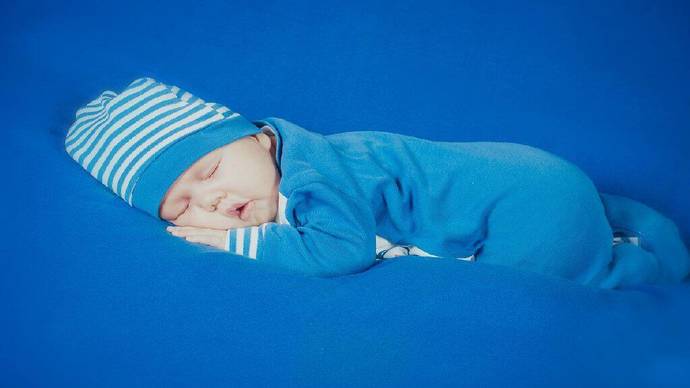As a new parent, you may wonder if your baby is getting enough nourishment during breastfeeding. It’s not uncommon for babies to fall asleep while nursing, raising the question of whether they are full or not. In this section, we will explore this common scenario and discuss how to ensure your baby is getting the nourishment they need.

Key Takeaways:
- Babies may fall asleep while nursing, but it doesn’t necessarily mean they are full
- Identifying signs of fullness during a nursing session is important
- There are strategies to gently wake your baby and ensure they get the nourishment they need if they fall asleep while nursing
- Monitoring weight gain and growth is essential in ensuring your baby is getting enough milk
- Preventing your baby from falling asleep while nursing can help ensure they are getting as much nourishment as possible
Is It Normal for Babies to Fall Asleep While Nursing?
If your baby falls asleep while nursing, you may wonder if they are getting enough milk. Rest assured, this behavior is quite common and is often an indication that your baby is content and well-fed.
During a feeding session, the act of nursing itself can be soothing and calming for a baby, leading them to doze off. Additionally, the hormones released during breastfeeding can make both you and your baby feel relaxed and sleepy.
It’s important to note that falling asleep while nursing is generally not a cause for concern unless your baby is showing signs of being underfed or isn’t gaining weight. In most cases, your baby will wake up when they are hungry again and continue nursing.
So, if your baby falls asleep while nursing, don’t panic. It’s likely that they are just enjoying a cozy meal with their loving parent.
Signs That a Baby Is Full
As a nursing parent, it’s important to be able to recognize when your baby has had enough milk during a feeding session. Here are some common signs that can indicate your baby is full:
- Slowing down or stopping sucking
- Releasing the breast
- Breastfeeding for shorter periods of time
- Becoming more relaxed and content during feeding
- Having a slower sucking rhythm
- Turning away from the breast
- Burping or passing gas
- Having fewer or no hunger cues, like rooting or puckering lips
It’s important to note that not all babies will show the same signs of fullness, and some may continue to suck even if they are full.
If you’re unsure if your baby is getting enough milk or is showing signs of being full, consult with your pediatrician or a lactation consultant.
What to Do If a Baby Falls Asleep While Nursing
If your baby falls asleep while nursing, it can disrupt the feeding process and lead to concerns about whether they are receiving enough nourishment. But there are practical steps you can take to gently wake them and ensure they get the milk they need.
First, try gently stroking your baby’s cheek or chin with a cool, damp cloth to wake them up. If that doesn’t work, gently massage their arms and legs to stimulate them. You could also try changing their diaper or burping them to keep them alert.
Another technique is to switch sides frequently during feedings. This helps to keep your baby engaged and stimulated. You can also try tickling your baby’s feet or blowing on their face to wake them up.
It’s also important to ensure that your baby is latching correctly and feeding effectively. A poor latch can cause your baby to tire quickly and fall asleep, so take the time to ensure they are positioned correctly and that their mouth is fully covering your nipple.
If all else fails, don’t worry. It’s natural for babies to fall asleep while nursing, and it doesn’t necessarily mean they are not getting enough milk. Keep an eye on their weight gain and alert your pediatrician if you have any concerns.
How to Ensure That a Baby Is Getting Enough Milk
One of the biggest concerns for breastfeeding parents is ensuring that their baby is getting enough milk. Here are some strategies to help monitor your baby’s intake:
- Track the duration and frequency of feedings. Newborns typically nurse every 2-3 hours for about 10-15 minutes on each breast.
- Listen for swallowing sounds, which indicate that your baby is actively nursing and getting milk.
- Observe your baby’s diaper output. In the first few days, your baby should have 1-2 wet and dirty diapers per day, increasing to 6-8 by day 5.
- Monitor your baby’s weight gain. A baby who is getting enough milk should gain about 4-7 ounces per week in the first few months.
It’s important to note that every baby is different and may have their own unique feeding patterns and needs. If you have any concerns about your baby’s milk intake or growth, don’t hesitate to consult with a lactation consultant or pediatrician.
In addition to monitoring your baby’s milk intake, ensuring they have a proper latch and feeding technique can also promote efficient milk transfer and increase milk production. And remember – a healthy, growing baby is a good indicator that they are getting enough milk during breastfeeding.
How to Prevent a Baby from Falling Asleep While Nursing
It’s frustrating when your baby falls asleep while nursing, especially if you’re trying to establish a feeding routine. Here are some tips on how to keep your little one awake and engaged during feeding sessions:
Ensure Comfort
One reason babies fall asleep while nursing is because they are too comfortable. Make sure your baby is not too hot or too cold, and that they are positioned in a way that allows for optimal feeding. This can include using a nursing pillow or finding a comfortable breastfeeding chair.
Keep Your Baby Awake
If you notice your baby starting to doze off, try to keep them awake by tickling their feet, talking to them, or gently stroking their cheek. You can also switch sides frequently to keep your baby interested and alert.
Try Different Feeding Techniques
Experiment with different feeding techniques to find what works best for your baby. Some parents find success with breast compressions or using a breast pump to help keep their little one engaged and awake during feedings.
Feed When Your Baby Is Alert
If your baby is sleepy or too full, they may not be interested in nursing. Try to time feedings when your baby is alert and hungry, such as after a nap or first thing in the morning.
Avoid Distractions
Try to minimize distractions during feeding sessions. Turn off the TV, put away your phone, and find a quiet, comfortable space where you and your baby can focus on feeding.
Keep in mind that some babies will naturally fall asleep while nursing, and it may not indicate a problem with their feeding routine. However, if you’re concerned about your baby’s weight gain or overall health, don’t hesitate to consult with a healthcare professional.
Conclusion
It’s common for babies to fall asleep while nursing, but it doesn’t necessarily mean they’re full. You should monitor signs that your baby is full, such as detaching from the breast, turning their head away, or closing their mouth. If your baby falls asleep while nursing, you can try gently stroking their cheek or changing their diaper to rouse them. It’s important to ensure your baby is getting enough nourishment, so monitoring weight gain and growth is crucial.
Proper latch and feeding techniques can also help ensure your baby is getting enough milk. Make sure your baby is properly positioned, with their nose and mouth facing your breast and their chin tucked in. If you find that your baby frequently falls asleep while nursing, try switching sides or burping them in between breasts.
By following these strategies, you can help prevent your baby from falling asleep while nursing and ensure they are receiving the proper nourishment for healthy growth and development.




